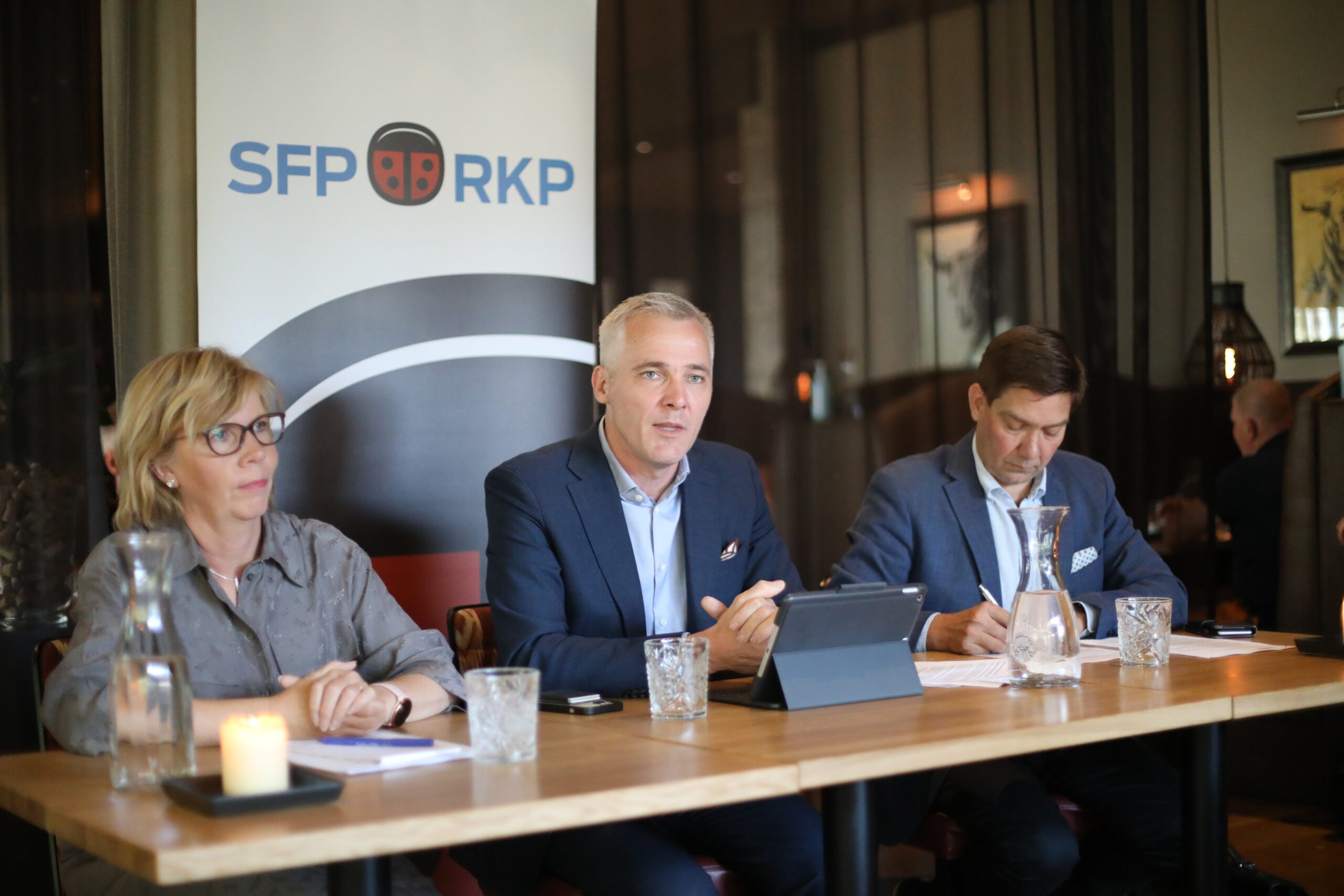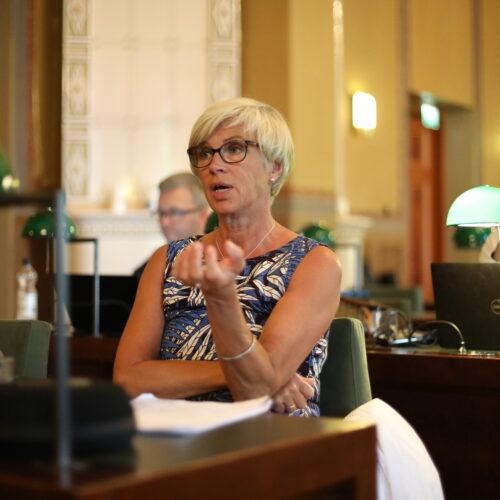The summer meeting of the Swedish Parliamentary Group: SFP and the Swedish Parliamentary Group consider it essential to safeguard Finns’ purchasing power.
“We need swift and targeted action to overcome the crises we are encountering. At the same time, we must keep the horizon and the big picture in view. With proactive and farsighted politics, we can provide security for citizens while making Finland a country where people want to move and in which they want to invest,” says Anders Adlercreutz, Chair of the Swedish Parliamentary Group.
“Everyday security comes down to people never having to wonder whether they can afford both food and heating in their daily lives. As inflation accelerates and day-to-day expenses start to add up, we have to secure the Finnish people’s purchasing power. Meanwhile, it is important to ensure that taxation encourages employment and entrepreneurship, to bring about a new upturn in the economy. SFP has long advocated tax cuts on work and pension income,” explains Anna-Maja Henriksson, Minister of Justice and the Chair of the Swedish People’s Party of Finland.
While overarching measures are needed to safeguard purchasing power and support growth, SFP is also calling for targeted action to assist the society’s weakest members.
“One important change would be to stop the single-parent child benefit supplement from causing a reduction in social assistance. Alternatively, the Swedish Parliamentary Group proposes a temporary change, whereby child benefit would not affect social assistance in the first place. This would have a direct impact on the daily lives of many families with children. Additionally, Finland should adopt a joint expense cap for all health care costs,replacing a the current separate caps for customer payments, medicines and travel,” Henriksson says.
Everyday security also means having domestic food production. SFP recommends a revision of legislation to address the long-standing and escalating structural viability crisis in Finnish agriculture.
“Many farms have been struggling to cope for a long time, with purchase prices practically being dictated by the large retail chains. There are many farms that have been in the same families for generations, which are now considering closure. We have to safeguard Finnish food production. Our farmers also need to make a living,” says minister Thomas Blomqvist.
“Retail operators have a great responsibility in this respect. They could set an example by raising the bar for their own brands, for example. Corporate responsibility also means assuming some responsibility for suppliers,” says Adlercreutz.
Reducing VAT on electricity
“Global politics, rising inflation and high energy prices affect all Finns in diverse ways. Not just those with small incomes: the rising day-to-day cost of living concerns all citizens. We cannot compensate everyone’s rising expenses, but we must particularly assist the most vulnerable groups. At the same time it is important to retain a longer perspective. Interfering with the market could easily cause similar problems further down the line,” Adlercreutz says.
“Finns are worried about rising energy costs. We need effective measures that will ease the situation in the coming winter. SFP recommends lowering the rate of value-added tax on electricity. While relatively easy to implement, a temporary VAT reduction would have a concrete impact on the ordinary citizen’s wallet,” Adlercreutz points out.
On Monday, the Swedish Parliamentary Group visited a nuclear power plant in Loviisa.
“Securing domestic electricity production and supply reliability is crucial. We must cut our dependence on Russian energy. Finland has a lot to gain from actively encouraging investment into green technology. SFP supports the renewal of the Loviisa nuclear power plant’s operating licence and wants the decision to be made during this parliamentary term.”
Hope needed for the future of health care
The Swedish Parliamentary Group is worried about the state of the Finnish health care system.
We are in a serious health care crisis. Swift and diverse resolutions are needed to ensure that Finland can continue to provide functioning health care and elderly services. We need a crisis group that listens to health workers.
“This involves, among other measures, ensuring that we have enough education capacity for registered and practical nurses, care assistants and doctors, that the health care profession is attractive, and that it provides job satisfaction, good leadership, gender equality and competitive remuneration. We need labour immigration, dismantling of rigid hierarchies and excessive bureaucracy, and recognition of foreign health care qualifications.Many pieces of the puzzle must fall into place for us to improve the attractiveness of the nation’s health care system,” Henriksson explains.
“More hands are needed in nursing and care. We want to retain the 0.7 nursing ratio, but our approach to the issue is pragmatic. It must not lead to units being closed down, for example. Therefore we must now discuss what measures are needed for the ratio to be fulfilled in practice,” Blomqvist says.







